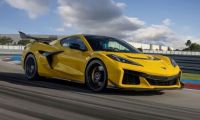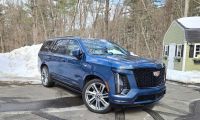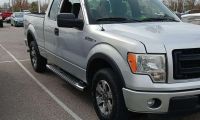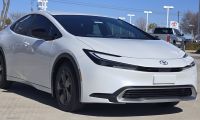Called Dragon Armor Battery, these three chemical models were shown to the world during an event held by the manufacturer - owned by the Great Wall group - in Changzhou, Jiangsu province, China, where it is headquartered.…
Undoubtedly the main characters have been the ternary cells, NCM, which achieve a high energy and volumetric density, which will allow - according to the manufacturer - to offer electric cars with more than 1,000 km of range, in packs that will have a high level of security and capable of accessing ultra-fast 4C charging rates.
The second to be presented was an LMFP (Lithium, Iron, Phosphate, Manganese) chemistry that will be placed halfway with a remarkable energy density, and an estimated autonomy of 900 kilometers with each charge. This is a configuration that dispenses with cobalt, which makes them cheaper - 9.5% cheaper than NCM according to the manufacturer - with an energy density that places them above LFP (Lithium-Iron-Phosphate), with 220 Wh/kg and a volumetric density of 503 Wh/L, in a configuration that will start manufacturing in 2024.
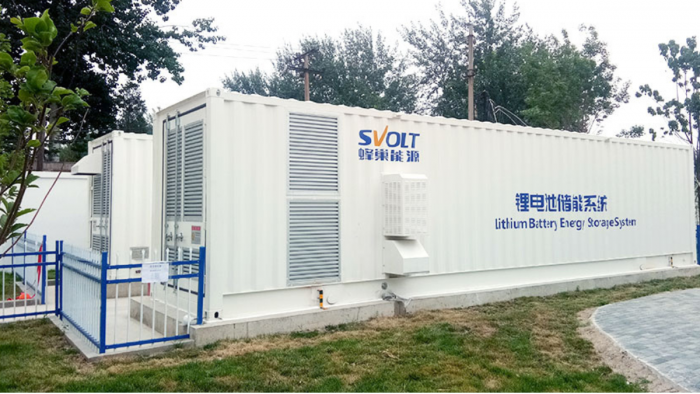
SVOLT has not forgotten about the more affordable options at the moment: LFP (Lithium-Iron-Phosphate) cells will also form part of its range of batteries in an alternative designed for access models or those that need to lighten their price. At the moment there are no specific data on the energy and volumetric density of these LFP cells, which according to SVOLT will allow electric cars that implement them an 800 kilometers range with each charge.
In the absence of official data, it leads us to think that at least three capacities can be manufactured: NCM, with 150 kWh; LMFP, with 100 kWh, and LFP with 90 kWh. These are cells that in all three cases have a high level of safety, thanks to a double-sided cooling design, which places a large area of the cells in contact with the cooling plate, something that in turn allows pressure and temperature relief of a cell at the bottom, preventing it from transferring any kind of problem to other cells.
In addition to being more secure, this Dragon Armor Battery reduces structural components by an outstanding 20%, eliminating between 10 and 20 kg of weight per pack; a very significant number for electric cars in general.
SVOLT has indicated that this new technology has already passed the "torture chamber" tests that include nail puncturing, hammer punches, shock absorption, and thermal stress tests; these temperature tests were performed at 200 degrees Celsius, and they were successfully passed and approved as per the technical requirements. This is something that opens the doors to start ramping up production, which according to SVOLT will begin this coming 2023, when implemented in the first commercial EV models.
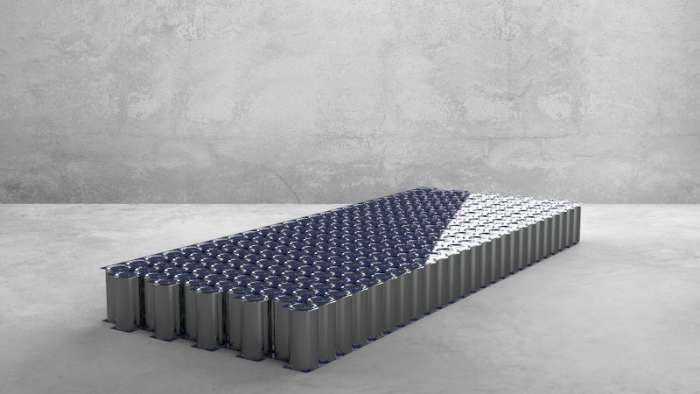
Let us remember that SVOLT is a Chinese manufacturer that is in full swing to build a huge battery factory in Europe: a facility with an initial capacity of 16GWh, which will be located in the German town of Lauchhammer, Brandenburg (not so far away from Tesla Giga-Berlin, also located in Brandenburg), and which will begin production at the beginning of 2024, followed by a second plant also on German soil that is expected will be inaugurated by 2025.
According to official information available on their website, the company “…a global high-tech company and spin-off of the Chinese automobile manufacturer Great Wall Motors, SVOLT develops and produces lithium-ion batteries and battery systems for electric vehicles as well as energy storage”.
SVOLT is headquartered in Jintan District, Changzhou, Jiangsu province in China. The home office of the European subsidiary SVOLT Energy Technology (Europe) GmbH is in Frankfurt am Main, Germany. It employs around 12,000 people worldwide, 3,000 of whom work in research and development, R&D. In 2019, it registered over 550 patents.
On Dec. 15, #SVOLT Energy Technology Co., Ltd., a Chinese power battery manufacturer carved out of Great Wall Motor, launched a slew of new technologies on its 3rd Battery Day. Of them, the "Dragon Armor" battery is the most eye-catching one. #gasgoo https://t.co/EfZH3CpzbF pic.twitter.com/ZCFX6iw2TQ
— Gasgoo Auto News (@Gasgoo_com) December 16, 2022
Although originally this manufacturer was focused on industrial applications and energy storage solutions, now with the Dragon Armor Batteries it looks ready to enter the world of electric cars with high-end cells with a range of more than 1,000 kilometers. It will be a tough path to follow, but apparently nothing is impossible for SVOLT.
The truth is that the battery industry is taking giant steps, and SVOLT seems to be one of the most powerful bets at the moment. What do you think about these new batteries? Let us know your opinion in the comments.
Source: SVOLT
Images courtesy of Tesla Inc. and SVOLT
Nico Caballero is the VP of Finance of Cogency Power, specializing in solar energy. He also holds a Diploma in Electric Cars from Delft University of Technology in the Netherlands, and enjoys doing research about Tesla and EV batteries. He can be reached at @NicoTorqueNews on Twitter. Nico covers Tesla and electric vehicle latest happenings at Torque News.
Set Torque News as Preferred Source on Google







